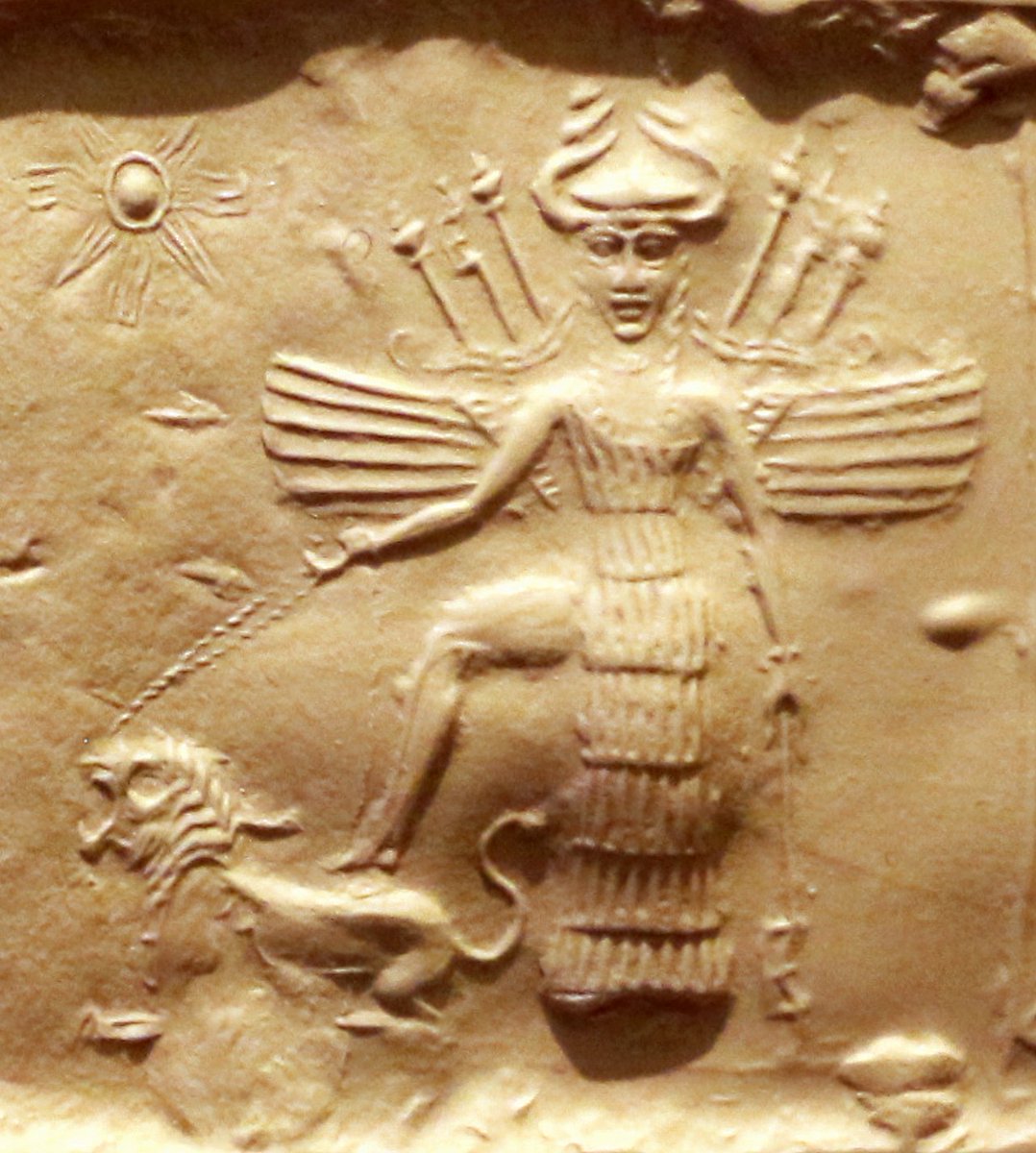13/19
Ishtar was called the Queen of Heaven and shows up on many Assyrian and Akkadian artefacts today. The following Akkadian seal, for instance, comes from 2300 BC. That& #39;s at least 800 years before the first Veda was penned!
Ishtar was called the Queen of Heaven and shows up on many Assyrian and Akkadian artefacts today. The following Akkadian seal, for instance, comes from 2300 BC. That& #39;s at least 800 years before the first Veda was penned!
14/19
By the time Christ was crucified, the Europeans were already celebrating some kind of spring festival in their own way involving trees, harvest, rabbits, and eggs (fertility?). All these festivals were named some variant of Easter etymologically linked with the PIE Hausōs.
By the time Christ was crucified, the Europeans were already celebrating some kind of spring festival in their own way involving trees, harvest, rabbits, and eggs (fertility?). All these festivals were named some variant of Easter etymologically linked with the PIE Hausōs.
15/19
In 325 AD, the First Council of Nicea was called. This is where in the official framing of Christianity and its ecclesiastical features, easter was first discussed. The idea was to use a common religion as a unifying political force when Rome was falling apart.
In 325 AD, the First Council of Nicea was called. This is where in the official framing of Christianity and its ecclesiastical features, easter was first discussed. The idea was to use a common religion as a unifying political force when Rome was falling apart.
16/19
Now floating a brand new religion is not an easy task. Nobody is readily willing to give up on a belief system they& #39;ve held on to for generations. So the key is to repurpose that existing system into some kind of a bridge with the new one. This reduces any hostility.
Now floating a brand new religion is not an easy task. Nobody is readily willing to give up on a belief system they& #39;ve held on to for generations. So the key is to repurpose that existing system into some kind of a bridge with the new one. This reduces any hostility.
17/19
That& #39;s what Constantine did with Easter. He took a piece of mythology already popular with his people, and repurposed it with the resurrection story into a brand new celebration. Christianity suddenly became less alien and more adoption-friendly.
That& #39;s what Constantine did with Easter. He took a piece of mythology already popular with his people, and repurposed it with the resurrection story into a brand new celebration. Christianity suddenly became less alien and more adoption-friendly.
18/19
But the official date wasn& #39;t established until 725 AD when St. Bede the Venerable, a Benedictine monk, standardized it as "the Sunday following the full moon which falls on or after the equinox." This date went further updates over the centuries though.
But the official date wasn& #39;t established until 725 AD when St. Bede the Venerable, a Benedictine monk, standardized it as "the Sunday following the full moon which falls on or after the equinox." This date went further updates over the centuries though.

 Read on Twitter
Read on Twitter


